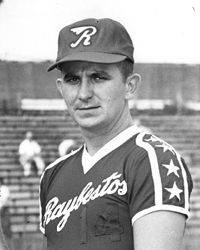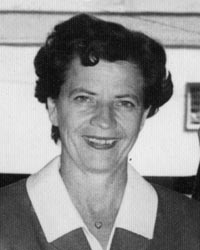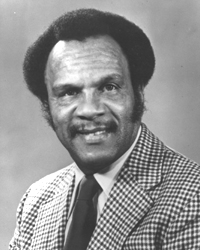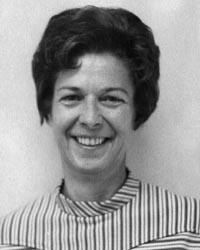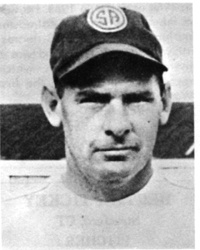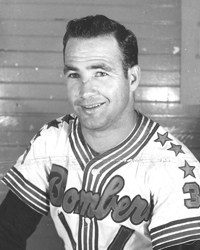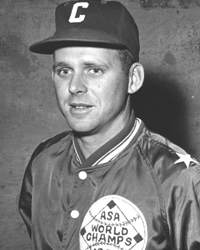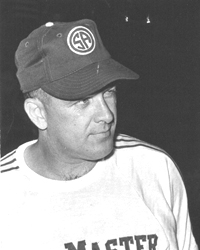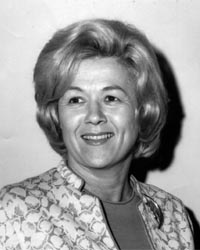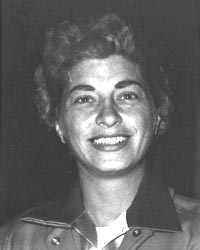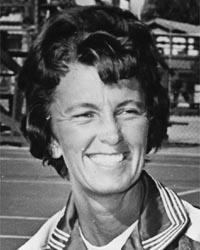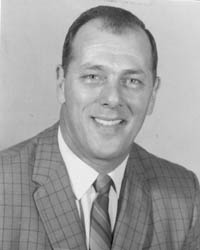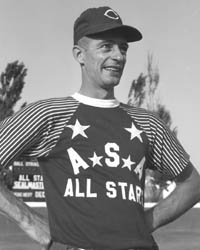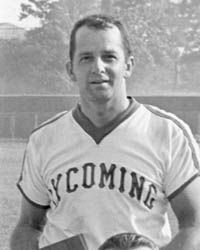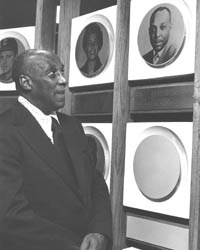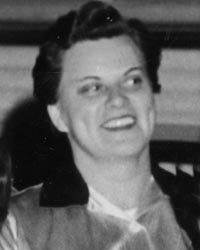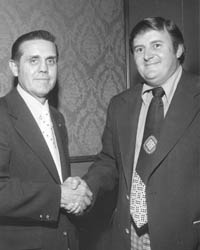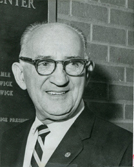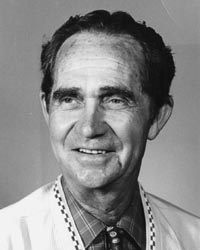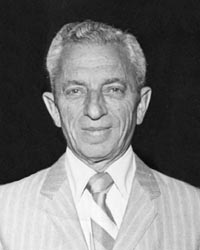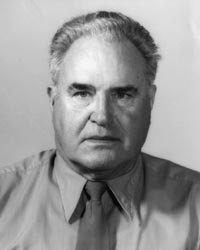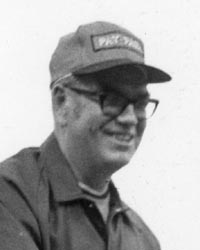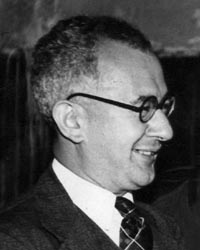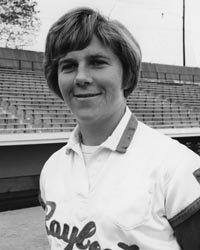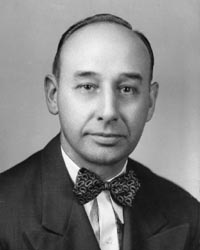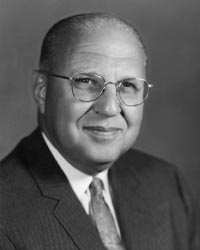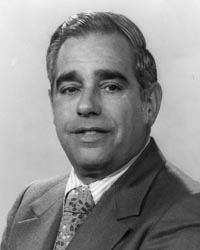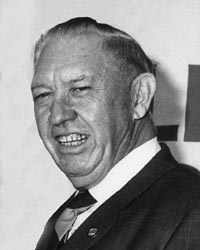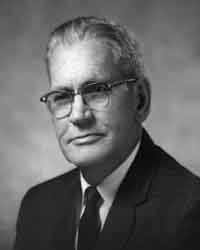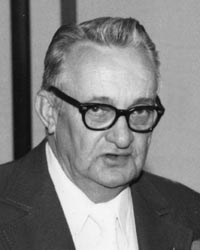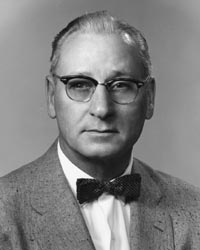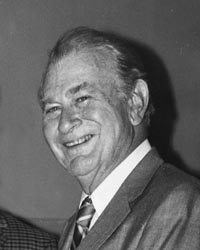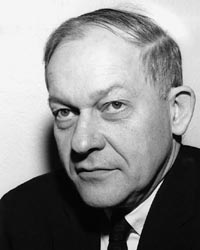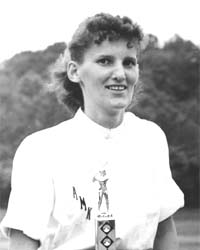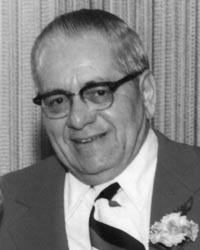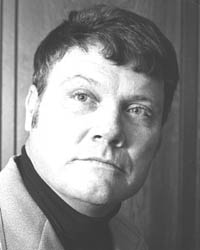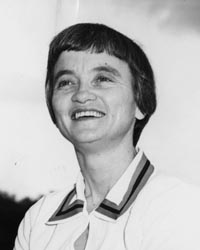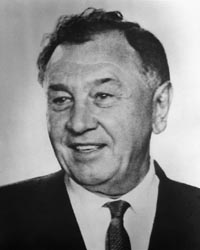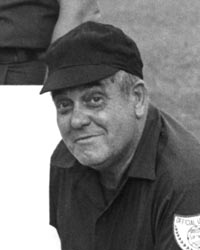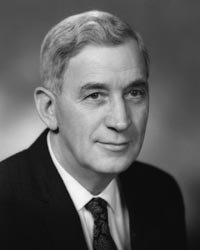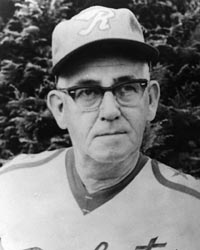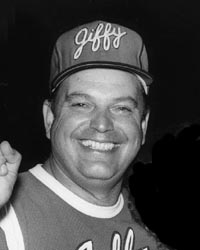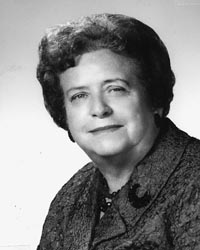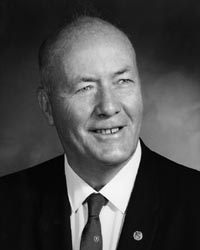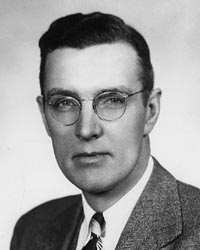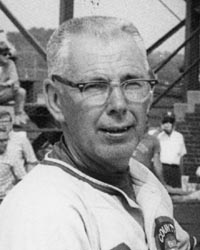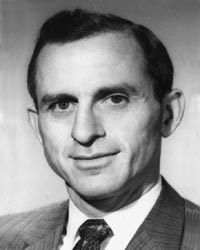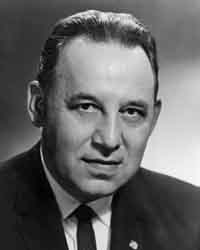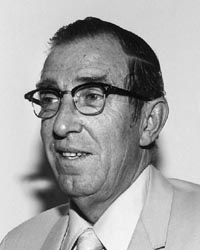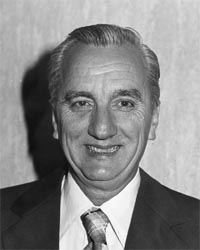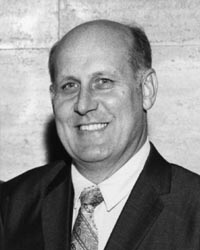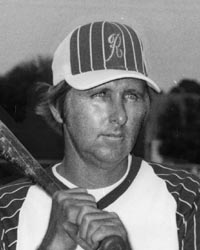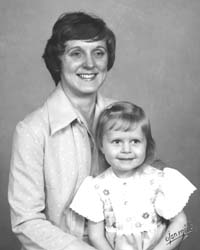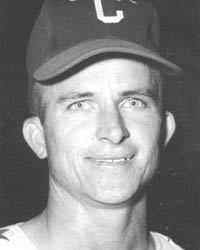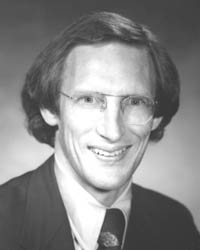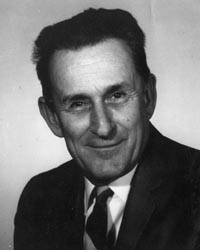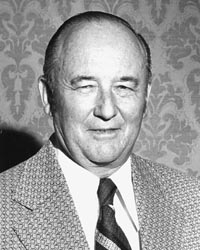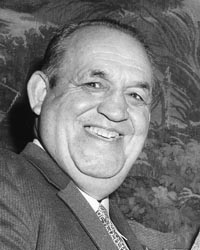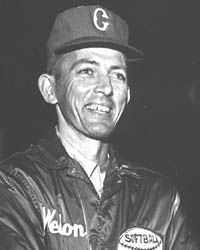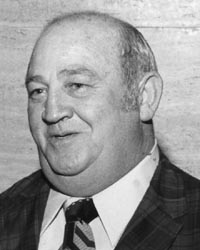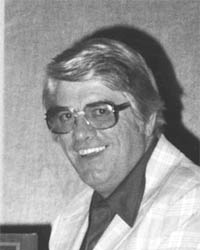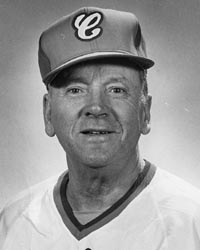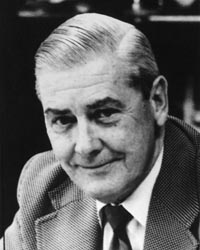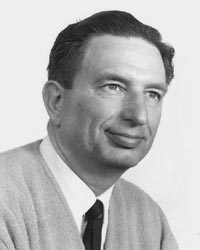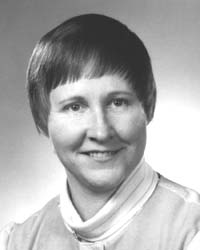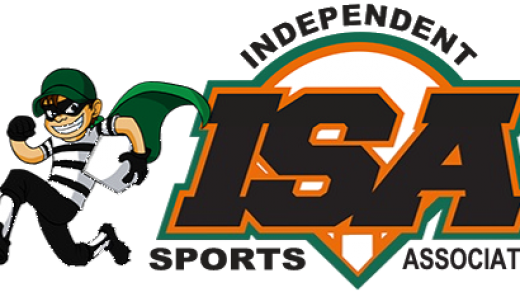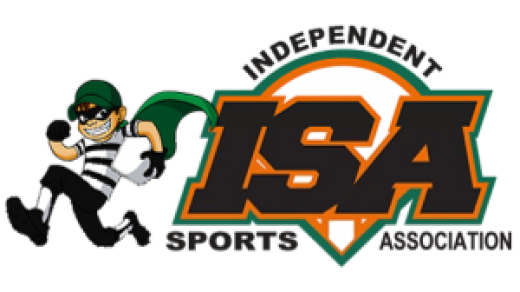The National Softball Hall of Fame is the ultimate goal for any player, coach, umpire or administrator who aspire to greatness in the sport. With over 400 inductees, the National Softball Hall of Fame is among the most difficult sports halls in the nation in which to gain membership.
Take a moment to browse through the Hall of Fame section and learn more about some of the sport’s greatest athletes and their accomplishments. If you get a chance to visit us in person while in Oklahoma City, please observe these hours of operation:
The Hall of Fame and Museum does not charge, but donations are greatly appreciated and accepted. Your donations help keep this history of softball alive through exhibit updates, upkeep and restoration projects.
Link to Video of the National Softball Hall of Fame
The National Softball Hall of Fame and Museum was established in 1957. Once USA Softball moved to Oklahoma City January 1, 1966 after having its offices in Newark, NJ, the decision to establish a Hall of Fame Building in Oklahoma City was made in January of 1965. Groundbreaking ceremonies for the Hall of Fame were held December 19, 1970 in Oklahoma City. The late John Nagy, former Cleveland Metro commissioner, was USA Softball President at that time. Hall of Famers Harold (Shifty) Gears and Carolyn Thome Hart were among those attending the ceremonies.
The National Softball Hall of Fame was officially dedicated May 26, 1973 in Oklahoma City. The building was opened to the public July 1, 1973.
The first of two additions to the National Softball Hall of Fame/USA Softball Headquarters was started July 5, 1976 and completed July 13, 1977 for an additional 4,350 square feet of space. Dedication ceremonies for the expansion were held July 23, 1977. Counting the National Softball Hall of Fame/USA Softball Headquarters and the USA Softball Hall of Fame Complex, there is 28,406 square feet of space.
A second expansion was added July of 1980 for an additional 5,182 square feet of space, with total footage 18,140 square feet of space.
The National Softball Hall of Fame and Museum has over 400 members with two categories of membership: players and non players. Within the player category, there are five categories: Men’s/Women’s Fast Pitch, Men’s/Women’s Slow Pitch and Modified Pitch. Within the non player category, there are five different divisions one can be nominated in: Commissioner, Meritorious Service, Umpire, Managers and Sponsors. A nominee needs 75 percent (nine votes) of the votes cast by the 12 member Hall of Fame Committee to be elected. Annual inductions are held at the USA Softball Annual Meeting.
Through our vast collection of artifacts, the National Softball Hall of Fame and Museum strives to educate the public about softball’s rich history. Your support is critical to these efforts.
The Hall of Fame Donation Fund was established to ensure that the National Softball Hall of Fame has a future and is committed to educating people about the great former players and non players and the role they played in the development of the sport.
Your tax-deductible contribution helps the National Softball Hall of Fame continue its mission of educating, collecting and honoring as well as the preservation of the history of softball, the maintaining of present exhibits and purchase of new exhibits and possible expansion of the Hall of Fame building.
Due to the volume of offers we receive, we cannot accept the donation of an artifact without a completed artifact description form. Please see our Mission Statement and Collections Management Policy to see what types of objects we will and will not accept. Once we have received your form, our staff will evaluate the object’s potential and will be in contact with you as to whether or not we will be able to accept the donation. If your object is chosen, the donated material will be recommended to the Executive Director for consideration. Following the meeting a staff member will contact you regarding the next steps.
![]() Click here for the Donor Questionnaire Form
Click here for the Donor Questionnaire Form
- National Softball Hall of Fame 1950’s
- National Softball Hall of Fame 1960’s
- National Softball Hall of Fame 1970’s
- National Softball Hall of Fame 1980’s
- National Softball Hall of Fame 1990’s
- National Softball Hall of Fame 2000’s
- National Softball Hall of Fame 2010’s
NATIONAL SOFTBALL HALL OF FAME CLASS OF 1970
John Spring, Detroit, Michigan – Men’s Fast Pitch – Pitcher
In 1949, then a 19-year-old John Spring made his debut in ASA national championship play by hurling a three-hit shutout for Briggs Beautyware of Detroit, MI against Cincinnati. In the years that followed Spring established himself as one of the great pitchers of all-time, winning 483 games and losing 62. He had a record of 44-13 in ASA national championship play and was named an ASA All-America 10 times. Spring was the mainstay for Briggs when it won ASA national titles in 1952 and 1953. Spring was 24-2 in 1952 and 21-8 in 1953. He also was a member of a national championship team in 1955, 1958 and 1965. In the 1953 national he also was named the MVP. After Briggs disbanded in 1954, Spring joined the the Raybestos Cardinals and compiled a record of 209 wins and 35 losses. One of his wins was a perfect game in the finals of the 1958 Men’s Major Fast Pitch National Championship. Spring finished his career playing for the Aurora, IL Sealmasters from 1963-1966, recording a 76-5 record before retiring. With a degree in engineering from the General Motors Institute (1953), Spring worked for Eonic Inc. for 29 years before retiring in 1994. Spring also is a member of the Illinois, Michigan and Connecticut ASA Halls of Fame. Spring was born August 23, 1930 and passed away on May 4, 2014.
Dot Wilkinson, Phoenix, Arizona – Women’s Fast Pitch – Catcher
Dot Wilkinson excelled at softball as well as bowling. In fact, she is the only member of the National Softball Hall of Fame who is a member of a Hall of Fame in another sport. Twenty years after being inducted into the National Softball Hall of Fame, Wilkinson was inducted into the WIBC Hall of Fame for winning a Triple Crown event, the Women’s International Bowling Congress Queens Tournament in 1962 and the WIBC national singles in 1963.Wilkinson started out playing second base for the PBSW Ramblers and a few years later was switched to behind the plate by coach Ford Hoffman, who told her, “You’re the catcher, you run the team. You can see everything that goes on, you can call every play, you can do the whole bit. That’s the place to be.” Before retiring in 1965, Wilkinson earned 19 All-America awards and had some outstanding years for the Ramblers, including 1952 (.374 batting average), 1953 (.363 batting average ), 1957 (.387 average in national championship); 1955 (.450 average in national with no errors on 36 chances) and 1954 (.455 average and 1.000 fielding percentage on 84 chances in national ). Dot said one of her greatest thrills came in 1940 when the Ramblers won their first of three national titles (1948 and 1949). Another thrill came in 1970 when she received her Hall of Fame plaque. If there was a disappointment, Dot said, it was not winning the national tourney in 1964. Retired from real estate sales in 1985, Wilkinson was born October 9, 1921.In 1999, Wilkinson was eighth and the only woman among the top 10 of The Republic’s Arizona Athletes of the Century.
Frankie A. Williams, New Haven, Connecticut – Men’s Fast Pitch – Second Base
To hit .400 in your first year of major fast pitch competition is amazing. Frankie Williams accomplished this in 1957, batting .404 for the Raybestos Cardinals. This feat was also mentioned in “Ripley’s Believe It or Not.” Said Williams, “I was fresh out of college when I joined the Raybestos Cardinals and had no idea what major league softball was like.” In seven of the 10 years Williams played for the Cardinals he was the team’s leading hitter. (1957, .404), 1960, .330; 1961, .375; 1962, .369; 1963, .370; 1964, .430 and 1965, .412. In 1964, he became the first player to hit .400 or higher in the highly touted Atlantic Seaboard League, batting .423. One of the game’s top lead-off hitters and second baseman, Williams earned ASA All-America honor three times (1957, 1958 and 1962), and holds team records for most runs scored in a season, 77 in 1957, and consecutive game hitting streak 23 in 1957. Retired as a player after the 1966 season, Williams had a 10-year batting average of .372 with 711 hits in 1,911 at-bats in 582 games with 73 doubles, 42 triples and 411 runs scored. In high school Williams was an outstanding three-sport star and earned All-State football honors at Hillhouse High School in New Haven, CT. He was named New Haven Gridiron Club Player of the Year in 1951 and played three years of basketball at Providence College. He has a master’s degree in education from Springfield College. Williams was born April 16, 1933.
NATIONAL SOFTBALL HALL OF FAME CLASS OF 1971
Virginia Busick, Fresno, California – Women’s Fast Pitch – Pitcher
Virginia Busick’s father must share some of the credit for his daughter becoming one of the best softball pitchers in the 1940s and 1950s. In 1946, after the wartime blackout of games had been lifted, Ginny’s father encouraged her to try out for a new team forming in Fresno, CA called the Rockets. “Believe it or not, I was bashful,” recalled Busick, who was born June 28th, 1925. “So my father put me in the car and took me. I will never forget that day. We walked onto the field and two men came out to meet me. They asked what position I played and my father said, ‘she pitches.’ They gave me a glove and said, ‘Let’s see you pitch.’” Ginny got the position and eventually became one of the top hurlers in the nation, leading the Fresno Rockets to the national title in 1957. In the national, Busick went undefeated (5-0) and allowed one run and 10 hits. She finished the year 32-4, allowing only 20 earned runs. She was named an All-American that year as well in 1958. In seven ASA national championships she achieved a 22-11 pitching record. Her 21-year career included four seasons as a manager, leading the Rockets to a third place in the 1968 national championship. Busick died August 5, 1982 at age 57.
Raymond “Ned” Wickersham, Palatine, Illinois – Men’s Fast Pitch – Outfield
One of the most feared hitters for the Aurora, IL Sealmasters, Wickersham played for the team for 12 years and compiled a .290 batting average. Twice he led the ASA Men’s Major Fast Pitch National Championship in batting (1964 and 1965) and is the only player to win the batting title in consecutive years. He is one of only two players to win at least a pair of batting titles. Wickersham batted .300 or higher five times and had a .344 average in 1958 and a .325 average in 1964. In 617 games with Aurora, he had 527 hits and hit 63 homers. He drove home 359 runs and was a tough out, fanning only 173 times in 617 games. Beginning his career in Palatine in 1949 playing for local teams, Wickersham was added to the Aurora roster as pickup in 1954. He joined the team on a regular basis in 1956 and remained with Aurora until retiring after the 1966 season. Not only an outstanding hitter, but Wickersham was also a fearless outfielder with a strong throwing arm who threw out 24 runners in 12 years. He made only 22 errors with 386 putouts for a .949 fielding percentage. Born June 24, 1928, Wickersham was a five-time ASA All-America (1957, 1962, 1963, 1964 and 1965) and All-Regional eight times. He was a member of three national championship teams and one ISF World Championship team (1966). He played in 11 ASA national championships and batted .243 (52-for-214). Retired and living in Palatine, IL, Wickersham said his biggest thrill in softball was hitting two homers against New Zealand. Wickersham died on January 21, 2012.
John “Buster” Zeigler, Miami, Florida – Men’s Fast Pitch – Outfield
Although Zeigler has a good sense of humor and is a humorous after-dinner speaker, he was all business on the softball diamond during a career that started in 1947 and ended in 1965. As a youngster, Zeigler seemed destined for a career as a boxer. He had a 97-1 amateur record before being called into the Navy. After being discharged, he won his first pro fight before losing his next and “being knocked back” to Miami. Zeigler then turned to fast pitch softball. He played the outfield and caught, but it was his hitting ability that caught the eye of the renowned Clearwater, FL Bombers, who picked him up for the 1949 national tourney. Zeigler moved to Clearwater and played for the Bombers in 1950 and 1951. He batted .500 in the 1950 national to help Clearwater to win its first of 10 national titles yet was not named All-American. By 1952, Zeigler had joined the Miami Industrial Sales Flyers and was named All-American that year. Clearwater added him to its roster for the 1960 national tourney and Zeigler responded by hitting .276 in the national to earn All-America honors. His regular season average that year was .405. Zeigler played in 10 ASA national championships. He was named All-State three times and All Regional eight times. He had a lifetime .358 batting average. He never batted below .300 and four times hit .400 or higher playing in the top Miami fast pitch league. He led the league in batting 13 out of 15 years. Zeigler was born March 5, 1925 and died on September 20, 2001 at the age of 76.
NATIONAL SOFTBALL HALL OF FAME CLASS OF 1972
William Jerry Curtis, Clearwater, Florida – Men’s Fast Pitch – Outfield
William Jerry Curtis was the kind of player managers dream about having on their team. Although an outfielder, Curtis was versatile enough to play just about every position on the softball diamond. In the Southern Region, Curtis has the destination of being named all-regional at four different positions: pitcher in 1950, utility in 1952, second base in 1954 and outfield in 1956. In six regionals he was a member of the winning team five times and was the Regional MVP in 1956. Curtis continued his versatility at the national championship level, playing in 12 nationals. He twice was named All-American as an outfielder and once each at second base and utility. He batted .204 in national championship play with 41 hits in 201 at-bats. Although not a high average hitter in national championship play, Curtis was known for hitting in the clutch. He had 25 RBIs in national championship play. Curtis played from 1947-1963 and was a member of seven national championship teams and four runners-up for the Clearwater Bombers. He retired as an active player in 1963 but came back to manage Clearwater in 1966 and 1967. His 1966 team won the ASA National title.
Don Ropp, Sandwich, Illinois – Men’s Fast Pitch – Third Base
When injuries riddled the Aurora, IL Sealmaster lineup in 1955, manager Leroy Hess knew what to do. He moved outfielder Don Ropp to the hot corner. Ropp did such an outstanding job playing third base that he remained there the remainder of his softball career, retiring in 1966. Ropp joined the Sealmaster organization in 1951. Records are not available prior to that time, but during the last 13 years with the team Ropp compiled a .325 batting average, continually facing the best pitchers in the United States. Ropp played 912 games, collected 864 hits, and hit 131 homers. He was one of only two players on the team to have more walks (377) than strikeouts (275). His highest batting average was .365 in 1961. Respected by his teammates, Ropp was team captain 11 years and appeared in 11 consecutive ASA national championships and was a member of three national championship teams (1959, 1961 and 1963). He batted .320 in his first national championship in 1959 and had a .193 average (41-for-212) in national tourneys. Twice he was a first-team All-America, 1956 and 1959, and four times he earned second-team honors, 1959, 1961, 1964 and 1965. He was named All-West Central Regional nine times and was a member of the 1966 ISF World Championship. Ropp contributed a pair of homers to the Sealmasters’ gold medal-winning effort. Although known for his hitting, Ropp was also a good defensive player, making only 57 errors from 1955-1966. Ropp was born October 30, 1929.
Bertha Ragan Tickey, Dinuba, California – Women’s Fast Pitch – Pitcher
A true test of greatness is consistency over a period, even under the most adverse conditions. Pitcher Bertha Tickey certainly met that criteria during a legendary career covering almost three decades. The only female in a family of seven children, Bertha played her first softball game in 1939 in Dinuba, CA as a shortstop before turning to pitching at 16. Bertha played her last game in 1968 for the Raybestos Brakettes of Stratford, CT. Bertha had retired in 1967.The team had three pitchers, Joan Joyce, Donna Lopiano and Donna Hebert when Bertha walked off the field following the national championship that year. Little did she know that she would be back for 1968. That happened when Lopiano went to graduate school and Hebert underwent shoulder surgery. At 38, Tickey came back to bolster a staff headed by Joyce. In typical Tickey style, Bertha came through (25-1) as the Brakettes repeated as national champions. “Everyone respected Bertha for her skills,” said former Brakette Brenda Reily. “She was kind of like a Lou Gehrig, a lot of class but not flashy.” From 1956-1968, Bertha pitched for the Brakettes and won 285 games and lost only 26. Bertha’s lifetime record of 757 wins and 88 losses includes 162 no-hitters. She was a member of 11 National Championship teams including four with the Orange, CA Lionettes (1950-51, 1952 1955) and seven with the Brakettes. Bertha died on April 9, 2014.
NATIONAL SOFTBALL HALL OF FAME CLASS OF 1973
Estelle “Ricki” Caito, Oakland, California – Women’s Fast Pitch – Second Base
When the Orange, CA Lionettes were winning ASA national fast pitch championships, forming part of their strong inner defense was second baseman Estelle “Ricki” Caito. An intense competitor and clutch hitter, Estelle was one of the most daring base runners in women’s fast pitch and a sure-handed fielder with quick hands. In fact, in her first four ASA nationals she made only one error with 32 assists and 35 putouts. Born September 14, 1925, Estelle participated in 10 ASA nationals and had a batting average of .143 in an era when pitching dominated. Her highest batting average in national championship play was .381 (8-for-21) in 1960 when she was named a first-team All-American. She also earned All-America honors in 1956 and 1957 and played from 1940-1965. With the Lionettes from 1955-1962, Ricki was a member of national championship teams in 1955, 1956 and 1962. She also participated for Lucky Stores of Alameda, CA (1940-45), Parichy Bloomer Girls of Chicago, IL (1946-1947, 1950-51), A-1 Queens of Phoenix, AZ (1948), Jax Maids of New Orleans (1949), Los Angeles Top Hats (1952-1954), and Phoenix Ramblers (1963-1965).
Gloria May, Glendale, California – Women’s Fast Pitch – First Base
When people talk about the slickest fielding first baseman in women’s major fast pitch Gloria May is one of the names often mentioned. May was certainly one of the best fielding first sackers during an impressive career starting in 1940 and ending in 1958. May, born February 19, 1929, earned ASA first-team All-America honors three times (1955, 1957 and 1963) and was a second-team choice twice (1956 and 1965). She participated in 15 ASA national championships and in 10 of them had a 1.000 fielding percentage. In 11 of those national championships, she had 413 putouts and 25 assists with only two errors for a .995 fielding percentage and a .130 batting average. Her highest batting average in national championship play was .444 in 1955. May joined the Fresno Rockets in 1949 and remained with them before retiring after the 1958 season. She was a member of three national championship teams, 1953, 1954 and 1957. Gloria recalled winning her first national championship in 1953 as her “greatest thrill” in softball while not having a chance to participate in the Olympics was a disappointment. Retired, Gloria lives in Kerman, CA with her husband, Vernon. They have a trailer in Baja, Mexico and travel there two-three times a year, plus Gloria has been competing in cross country air races since 1987 and has never finished below 15th.
Myron Reinhardt, Alexandria, Kentucky – Men’s Slow Pitch – Catcher
When the Hall of Fame approved to elect slow pitch players, Myron “Riney” Reinhardt of Alexandria, KY, was the first elected in 1973. He was an appropriate pick because he was a member of the team to win the first men’s slow pitch national championship, the first team to win the title twice, the first team to come out of the loser’s bracket to win the slow pitch national title and the first team to win three slow pitch national championships. Reinhardt played more than 2,000 games during his 20-year career starting with the Sixth Ward Boosters fast pitch team in 1948 and ending in 1967 with the Stroh’s Beer slow pitch team. He played in one ASA Fast Pitch National Championship (1949) and 11 of the first 13 slow pitch national tournaments. He batted .581 in national championship play and was a five-time All-America (1954, 1956-57, 1959 and 1963). He had a .503 lifetime batting average and hit 46 homers in 1953 (.592 BA) and 51 in 1954. In 1963, he also was named the tourney MVP, batting .533 with four homers. That tourney provided Reinhardt with the greatest thrill of his career when his team, Shield’s Contractors of Newport, KY, overcame a nine-run deficit in the final two innings against Musicaro’s of New York City to win the title. In 1968, Reinhardt retired as an active player. He was born August 27, 1926 and still lives in his hometown of Alexandria, KY. He retired from work in 1988.
Richard “Ricky” Tomlinson, Valois Quebec – Men’s Fast Pitch – Shortstop
When the Clearwater, FL were the pride of men’s fast pitch, they had the Keystone Kids, Ricky Tomlinson, and Billy Parker. Tomlinson played shortstop, Parker second base. “He probably was, in my book, the best shortstop that ever played the game,” said Doug Mason, former Bomber third baseman.” He (Tomlinson) could do it all. He didn’t look fast, but he could fly.” A lanky 6-feet tall and 195 pounds, Tomlinson had good power because of his tremendous wrist snap, which he developed playing badminton. A native of Valois, Quebec, Canada, Tomlinson started playing at age 11 in the Montreal, Canada Metro League. In fact, he played for Montreal in his first national championship in 1957 and had 22 assists, 18 putouts and one error for a .976 fielding percentage. In 1958 he joined the Bombers and played 10 years. He led them in batting seven times and was runner-up twice. He batted .339 in 1968 in his last season with the team and had a .345 average for nine of the 10 years he played for them. His highest average with Clearwater was .384 in 1967. He batted .361 in 1961 and had 107 hits, the first Bomber to crack the century mark in hits. In 1963, he broke that mark again with 114 hits. Tomlinson participated in .11 nationals and batted .213 including .389 in 1959, .333 in 1960 and .353 in 1961. He was named an All-American seven times. Tomlinson died on May 30, 1986 of cancer.
NATIONAL SOFTBALL HALL OF FAME CLASS OF 1974
Frank DeLuca, Stratford, Connecticut – Men’s Slow Pitch – Pitcher
Originally a fast pitch player, Frank “Hooks” DeLuca switched to slow pitch in 1958. It was a decision neither he nor the Avco Lycoming team would regret during the next 13 years. During that time, DeLuca hurled the Stratford, CT team to a pair of Men’s Major Industrial Slow Pitch national titles (1968 and 1969), in compiling an overall mound record of 737 wins and 121 losses for a winning percentage of .859. In national championship play, DeLuca had a 28-7 record with an ERA of 4.41 and a .525 batting average. His lifetime batting average was .484. In the 1968 national tourney, DeLuca was 8-1 and had an ERA of 2.71. In 1969 he was undefeated in six games and had an ERA of 2.84. Following the 1968 national, Avco swept a four-game series against the Industrial Slow Pitch All-Stars, winning 8-2, 21-5, 13-5 and 14-5. DeLuca hurled all four games with his “never know” pitching style and batted .417. DeLuca was the first industrial slow pitch player elected to the ASA Hall of Fame. He was born July 11, 1929 and had a 26-year softball career, starting with Lombard’s in 1945 and ending with Avco Lycoming in 1971.
Charlie Justice, Detroit, Michigan – Men’s Fast Pitch – Pitcher
A former member of the Harlem Globetrotters, Charlie Justice distinguished himself on the pitching mound in becoming the 47th player elected to the ASA Hall of Fame. Between 1934-1965, Justice won 873 games and lost only 92. In national championship play, Justice compiled an impressive 21-6 won-loss record and earned ASA All-America honors in 1945, 1949 and 1950. In 1945, he also won the national tourney MVP award after leading M&S Orange of Flint, MI to a runner-up spot almost single-handed by striking out 74 batters and allowing 21 hits in 69 innings before losing to the renowned Fort Wayne, IN Zollner Pistons, 1-0. In 1949, he hurled Tip Top Tailors of Toronto, Canada to a national title, winning 3-2 in an 18-inning final. Justice hurled 12 of the innings, allowing five hits and fanning 13 against Clearwater. In 1950, however, the Bombers redeemed themselves and beat Justice and the Tailors in the finals. Charlie finished with a 5-2 record and 40 strikeouts. For the first time in ASA history an African American team played in the national men’s fast pitch tournament in 1939 as Justice led Big Six to a 2-1 record, losing to Briggs 3-0. Justice earlier beat Elizabeth, NJ on a one-hitter, striking out 11. Big Six then beat Washington 3-2 before being eliminated. Justice died on November 7, 1974 at age 61.
NATIONAL SOFTBALL HALL OF FAME CLASS OF 1975
Kathryn “Sis” King, Cincinnati, Ohio – Women’s Fast Pitch – Outfield
When it came to hitting for average and power, Kathryn (Sis) King was among the best playing for teams in Cincinnati, OH Phoenix, AZ and Stratford, CT. In three years with the Brakettes, Sis had a .322 batting average after 15 years with teams in Cincinnati and Phoenix. She played in six ASA national championships and was a four-time first-team All-America. She was named as a second baseman in 1959 for the Phoenix, AZ Ramblers, and as an outfielder in 1963, 1964 and 1965. She batted .400 in the 1963 national with averages of .417 in 1964 and .400 in 1965. In 1965, when the Brakettes toured the world promoting softball and played in the first ISF World Championship in Melbourne, Australia, King’s .352 batting average led the team as did her 12 hits including four triples. She finished the year with a .333 batting average, second best on the team. In 1967, softball was a demonstration sport at the Pan American Games and King was a member of the Raybestos Brakettes, who represented the USA. She was the first woman to hit a home run over the scoreboard at the former Raybestos Memorial Field (1959) and the first woman to hit back-to-back homers at Memorial Field during a national tourney. Kathryn died on April 18, 2014.
Don Rardin, Lexington, Kentucky – Men’s Slow Pitch – Pitcher
One of only two players on slow pitch national championship teams in both Major Industrial and Open, Rardin was a member of five national championships teams Gatliff Auto of Newport KY (1956 and 1963), Hamilton Tailors, Cincinnati, OH (1961), Yorkshire Club, Newport, KY (1959) and IBM of Lexington, KY (1966). Originally an infielder, Rardin switched to pitching in 1965 and compiled a 67-18 record with a .680 batting average for IBM. As a pitcher, Rardin won 234 games and lost 39 during his career and had a lifetime .606 batting average. Only once did Rardin play on a team that finished below fifth in a national championship. He was a member of five national championship teams, two runners-up, two third place, one fourth and one fifth place. Rardin had one of his best national championships in 1966 for IBM, culminating with him being named the tourney MVP after allowing 13 runs (11 earned) and 40 hits in six games. In the championship game, he allowed McAdenville, NC nine hits as IBM overcame a 4-0 deficit to post a 6-4 win. Rardin’s last year as an active player was 1967 as he batted .603 for IBM and compiled a 78-15 pitching record in leading the team to a third-place finish in the national championship.
NATIONAL SOFTBALL HALL OF FAME CLASS OF 1976
Nick Barack, Columbus, Ohio – Commissioner
Named Ohio State ASA Commissioner in 1948 and held that post for 20 years. Served as President of ASA/USA Softball in 1949-1950. Served as President of the International Softball Federation for five years. Under Barack’s leadership, Ohio ASA led the nation in team softball registrations from 1949-1968. He was the Columbus, Ohio Superintendent of Recreation for 23 years. During his tenure, he developed the Columbus Recreation Department into one of the best city recreation departments in the country. Barack was a past-President of the Ohio Parks & Recreation Association and the Barack Recreation Center in Columbus was named in his honor by the Columbus City Council in 1964. He died in 1976 at the age of 80.
Commie Currens, Cincinnati, Ohio – Manager
From a playground team sponsored by his former employer, Western-Southern Life Insurance Company, Currens built a powerhouse that won 377 games and lost only 14 from 1956-1966. Playing under the banner of Dana Gardens, the team participated in seven ASA national championships and won four ASA national titles between 1962-1966. They are the only women’s slow pitch team to win three national titles in a row. Hall of Famers Donna Wolfe and Norma Eschenbrenner Ante were members of the Dana Gardens team. Upon his death in 1992, Wolfe commented about Currens, “Commie lived, breathed, ate and slept softball. It was his life, and he dedicated his whole life to see that girls had a chance to play softball. He was the forerunner of girls’ softball in Greater Cincinnati. He called all his players his ‘kids.’ It was a family-one of the closest ball clubs I’ve ever played with.” Currens died in November of 1992 at age 84. In 1988 he was inducted into the Hudepohl Softball Hall of Fame.
George Dickstein, New York, New York – Umpire
Was named ASA umpire-in-chief in 1949 and international rules interpreter in 1955. Under his leadership, ASA umpire registrations grew to more than 14,000. During his career was instrumental in getting uniform rules interpretations adopted. Helped spread the popularity of softball by speaking at numerous overseas clinics. Also, a top college basketball official and umpired baseball on collegiate and industrial levels. Dickstein died on September 5, 1971 of a heart attack after returning from an ASA national tourney. He was 63 years old.
Ray Ernst, Cincinnati, Ohio – Umpire
Ernst had the first slow pitch rule book printed by the McGregor-Goldsmith Company in 1953. Ernst presented the book to the ASA, which sanctioned its first Slow Pitch National (then called World) Tourney in 1953. Served as slow pitch rules interpreter and UIC from 1956-1964. Was special assistant for ASA in 1970 and 1971. Was a member of International Joint Rules Committee on Softball. Promoted clinics in England, Spain, and Germany in the spring of 1971. Was UIC for first 14 men’s slow pitch national tournaments and umpired in six of them. Ernst umpired in the first ASA national in 1933 in Chicago, IL. Formed the Queen City Umpires Association in Cincinnati, OH. Ernst died January 28, 1980 at age 75.
Willard Fenton, Seattle, Washington – Manager
During 22-year career led teams in Seattle, WA to 1,387 wins of 1,700 games, a .816 winning percentage. In 14 ASA national championships, his teams won 23 games and lost 28. Team’s best finish at the national level was a third in 1958. At the regional level, his teams compiled a 73 -17 record winning 13 regional titles. In 1973, he was named Man of the Year in sports by the Seattle Post-Intelligencer. Graduated from Seattle University in 1946 with a bachelor’s degree in economics. Named as alternate coach for the 1979 USA Men’s Pan American team. He was born April 8, 1923 and died March 17, 2000 at age 76.
Leo Fischer, Chicago, Illinois – Meritorious Service
Along with Michael J. Pauley, was responsible for founding the Amateur Softball Association in 1933, which grew out of a tourney held in conjunction with the World’s Fair in Chicago. Pauley and Fisher drove throughout the Midwest inviting teams to participate in the tournament. Fischer served as the first president of the ASA and Pauley as the first executive secretary. Forming of the ASA brought order to softball and provided uniform rules and playing specifications for all teams. Fischer was elected to the Illinois ASA Hall of Fame in 1972. For 28 years he was the sports editor of the Chicago American and was past president of the National Basketball League and the Football Writers of America. He worked his way through college at Northwestern as a copy boy for the Chicago Examiner. Fisher retired from the softball position in 1939 and died on August 28, 1970. He was 72.
Pat Harrison, Vancouver, British Columbia – Women’s Fast Pitch – Outfield
Four times during her 20-year career in fast pitch Pat Harrison earned All-America honors. She was a first-team choice in 1966 (.304 BA), 1968 (.368) and 1970 (.250 BA) and a second team selection in 1963 (.250 BA). Nine years she played for the Raybestos Brakettes (1964-1972) and was a member of five national championship teams. She batted .303 during her stint with the Brakettes with 430 hits in 1,421 at-bats including 66 doubles, 42 triples and 18 homers. In 482 games she drove home 189 runs and twice, 1966 (.301) and 1971 (.340), led the Brakettes in batting average. The greatest thrill of Harrison’s career came in 1972 in her last game. Playing against the Orange, CA Lionettes, she hit a two-run homer in the bottom of the seventh inning. She played in 11 national championships, nine with the Brakettes and two with the Erv Lind Florists of Portland, OR. A graduate of the Connecticut State College, Harrison also batted .225 in the first ISF World Championship in 1965 in Melbourne, Australia where the Brakettes, representing the USA, finished second. Not winning that gold medal, said Harrison, was the greatest disappointment of her career.
Fred Hoffman, St. Joseph, Missouri – Commissioner
One of the original members of ASA, Hoffman served as Missouri ASA commissioner for more than 50 years, from 1933 until his death February 12, 1984. From 1962-1963 he served as president of the ASA. Former chairman of the ASA Commissioner Appointment Committee and vice-chairman of the International Joint Rules Committee on Softball. He was instrumental in helping to raise $1 million for the new Family YMCA in St. Joseph, MO. He was named membership secretary in 1927 and served in different capacities until he was named YMCA executive director in May 1949. He served in that position until June of 1980. He was past president of the Kiwanis Club of St. Joseph, held the position of club secretary from 1939-1974 and was honored for his 35 years of service when he resigned in 1974. Received a Kiwanis life membership in 1976. Was YMCA’s rep on the ASA National Council.
Charles Hurd, Aurora, Illinois – Sponsor
Started the Aurora, IL Sealmasters men’s fast pitch team in 1942 and continued to sponsor the team until 1969. During this span, the Sealmasters won four ASA men’s fast pitch national championships and two ISF World Championships. Hurd was born September 4, 1903 and died September 2, 1979. He was 75 years of age.
Bernard Iassogna, Stratford, Connecticut – Umpire
Was international rules interpreter 1972-1973 and national umpire staff member 1973-1976.Was ASA registered umpire for 28 years and umpired in 15 ASA nationals. Four times was named Outstanding Umpire in an ASA national. Conducted 13 overseas clinics in nine countries and was former chairman of the ASA Umpires Committee. President of the Bridgeport Umpires Association for 23 years. Iassogna died on December 5, 1975 at the age of 54.
Raymond Johnson, Nashville, Tennessee – Meritorious Service
Served longest term as president of the Amateur Softball Association from September 19, 1942 to January 18, 1948, which were critical years for the Association. If it were not for Johnson’s strong leadership, drive, tenacity and connections with the Coca-Cola Company, the ASA could just as easily not flourish. One of the legends of sports writing, Johnson served as sports editor of the Nashville TENNESSEAN from 1937 until retiring in 1970. He joined the paper as a copy boy in 1918. After retiring, he spent three years as director of public relations at Churchill Downs. Johnson was a member of the ASA Executive Board from 1942 until his death August 10, 1991 at age 87.
Carl Kelley, Omaha, Nebraska – Commissioner
Served as Metro Omaha ASA commissioner from 1957 to 1989. He was also president of the Omaha Softball Association (OSA) for 25 years. In 1966, was inducted into the OSA Hall of Fame. An eight-field complex in Omaha is named in honor of Kelley and his wife, Lola. Kelley died July 27, 1992 of congestive heart failure at age 84.
W.W. “Bill” Kethan, Houston, Texas – Commissioner
One of the pioneers of the ASA, Kethan served as Texas ASA commissioner from 1948-1987 and built that association into one of the best in the ASA. He served as president of the ASA from 1964-1965 and was instrumental in the ASA moving its headquarters from Newark, NJ to Oklahoma City and eventually building a national office and Hall of Fame there. Kethan also was heavily involved internationally and served as the first president of the International Softball Federation from 1965-1986. He was one of the strongest supporters of softball’s quest for inclusion into the Olympics, which came about June 1991 in Birmingham, England. In 1974, he was elected chairman of the United States Amateur Athletic Federation, an organization composed of some 15 sport’s governing bodies. In 1981, Kethan was elected to the ISF Hall of Fame. He served on numerous committees during his ASA career including chairman of Foreign Relations and Equipment Standards and vice chairman of Appointments. He died March 1, 1992 at age 77.
Einar Nelson, Minneapolis, Minneapolis – Commissioner
Served as Minnesota State commissioner from 1947-1951 and Metro Minneapolis commissioner from 1951-1973. From 1964-1973, served as chairman of the National Softball Hall of Fame and ASA Headquarters Building Committee. Hosted two national tournaments during his career as commissioner, Men’s Major Fast Pitch in 1954 and 1958. Was elected president of the Minnesota Recreation Park Association in 1947. Einar died September 28, 1993 at age 85.
William J. Pharr, McAdenville, North Carolina – Sponsor
Pharr sponsored 26 teams in 21 years. His Pharr Yarn Reds were Major Industrial Slow Pitch champions six times: 1960, 1961, 1963, 1970, 1971 and 1972. Combined record of his Reds’ teams in Open and Industrial ASA National Tourneys was 95 wins and 32 losses. He also sponsored two women’s teams and a boys’ youth team. Three times Pharr Park hosted ASA nationals (1966, 1969 and 1973) and in 1971 the World Series of Softball, matching the Pharr Yarn Reds against the Open champion, the Virginia Beach Piledrivers.
William S. Simpson, Stratford, Connecticut – Sponsor
His efforts put softball on the map in Connecticut and made the Raybestos Brakettes and Raybestos Cardinals household names to softball fans. Made Stratford, CT the mecca of men’s and women’s fast pitch softball. Sponsored Raybestos Brakettes, women’s fast pitch team, for 28 years, with team winning 11 ASA national titles. Sponsored the Raybestos Cardinals for 25 years with the team winning men’s national titles in 1955, 1958, 1969, 1970, 1972 and 1976. Under his leadership, the facilities at Raybestos Memorial Field in Stratford were built and dedicated in 1946. The field was the first lighted facility for softball in Connecticut. The field hosted 12 ASA nationals, including 10 women’s and two men’s tourneys. In 1974, it hosted the third ISF Women’s World Fast Pitch Championship. It was the first time the championship had ever been held in the United States. Simpson was born July 20, 1916 and died on January 21, 2006.
Alberta Kohls Sims, Cincinnati, Ohio – Women’s Slow Pitch – Outfield
Called by former coach Cummie Currens the “greatest team player I ever saw,” Alberta Kohls Sims starred in slow pitch and earned All-America honors three times. She also was named MVP in the 1964 ASA national tourney when she batted .533. She also was named All-America in 1962 (.412 BA) and 1963 (.480). She had .455 batting average in five ASA nationals. Sims was a member of three consecutive national championship teams for Dana Gardens of Cincinnati, OH: 1962, 1963 and 1964. Alberta played 11 years in a row for Dana Gardens. Between 1962-1966 the team won 377 games and lost only 14. Sims was the first woman named to the Hall of Fame in slow pitch. Sims died on October 6, 2016.
Art Solz, Minneapolis, Minnesota – Umpire
Had 35-year career as an umpire starting in city of Minneapolis in 1931. Replaced Einar Nelson as Metro Minneapolis commissioner in 1973. Between 1954-1971 served as assistant for George Dickstein. Officiated five Men’s Fast Pitch Nationals: 1953, 1954, 1955, 1956 and 1958. Started Minneapolis Umpires Association in 1951. Was elected president of organization in 1954. Is a member of the Minnesota ASA Hall of Fame. Art died on April 11, 1980 at age 66.
Bobby Spell, Lake Charles, Louisiana – Men’s Fast Pitch – Pitcher
Players were Spell-bound after they faced hard-throwing pitcher Bobby Spell in an ASA national championship. That is because getting an earned run off Spell was nearly impossible. In fact, in 205 1/3 innings of national championship play Spell allowed only eight earned runs and struck out 258 batters for an ERA of 0.27. In his first 159 1/3 innings of national championship play, Spell allowed only one earned run. Spell won 18 of 27 games in national championship play and was a four-time first-team All-America: 1958, 1959, 1960 and 1968. He played for some of the nation’s top men’s teams including the Clearwater, FL Bombers, Stratford, CT Raybestos Cardinals and his hometown of Lake Charles, LA. Spell made his first appearance in national championship play in 1956 for Baton Rouge, LA, going 1-2 but he did not allow any earned runs, fanned 26 in 21 innings and allowed seven hits. Between 1957-1960, Spell won 14 of 17 games in national championship play. He played for Clearwater in 1957, 1959 and 1960 and for Lake Charles in 1958 when he went 5-2 in the national tourney, allowing two earned runs with 70 strikeouts and 21 hits. Spell had a regular season record of 58-4 with 1,039 strikeouts and only 67 walks. Spell played in the 1961 (1-1) and 1962 (0-2) nationals, then did not play in another national tourney until 1968, winning two of three games with 14 strikeouts in 21 innings. His last appearance in a national tourney was 1970 (0-1). On June 1, 2002 Spell was the first of 11 people inducted into the Louisiana Fast Pitch Hall of Fame. Spell died on July 2, 2002. He was 72 years old.
Pat Walker, Orlando, Florida – Women’s Fast Pitch – Outfield
Pat Walker was double trouble for the opposition during her 25-year fast pitch career. Not only was she a good hitter, with a lifetime .314 average, but she was a consistent base stealing threat after she got on base. During her career with the Orlando, FL Rebels, she stole 172 bases and led the team in steals eight times. Seven times she was the team’s leading hitter with a personal best of .431 in 1955. Pat started playing softball at 13 and by 16 she had played in her first of eight ASA national tourneys, earning All-American laurels in 1961, 1966 and 1968. In those nationals, she made only one error and her highest batting average was .417 in 1967. Playing in 12 regionals, Pat was an all-regional pick 11 times, batted .350 and made only two errors with 69 putouts and four assists. At the state level she was honored eight times. Besides being an outstanding hitter and base runner, she was the team’s captain and, when needed, took her turn on the mound, compiling a 47-24 record with three no-hitters and 13 shutouts. She allowed less than two runs a game in 536 innings pitched. Former Orlando coach Marge Ricker said, “No better defensive player than Pat played for her or had she seen a better one.” Although one of the top finishing teams in the national tourney, the Rebels never won a title during Pat’s career, which was her biggest disappointment. Her biggest thrill was an extra inning game against Portland in the 1961 national tourney. Was born March 19, 1933 in Orlando, FL. retired in 1987 from Southern Bell after getting a job following high school graduation in 1951.
Fred Zollner, Duluth, Minnesota – Sponsor
Starting in 1940, sponsored Fort Wayne, IN Zollner Pistons men’s major fast pitch team for 15 years. During that time, the team won three consecutive ASA national titles (1945-1947) and compiled a record of 1,253 wins and only 189 losses for a winning percentage of .869 against the best competition in the United States. Zollner even built his own stadium, which was later turned over to the city of Fort Wayne, IN. Pistons played in five ASA nationals, 1942-1947. Besides being a member of the ASA National Softball Hall of Fame, Zollner also is a member of the National Basketball Hall of Fame (1999). Zollner died June 21, 1982 in North Miami, FL. He was 81 years old. On August 29, 2003, the Fred Zollner Memorial Stadium was dedicated in Fort Wayne, IN. Five former Zollner players attended the dedication.
NATIONAL SOFTBALL HALL OF FAME CLASS OF 1977
Robert Deal, Etowah, Tennessee – Umpire
Started umpiring in 1950 and worked in 13 ASA nationals, both men’s and women’s divisions. Twice assisted George Dickstein at ASA nationals and is affectionately known as “Dirty Deal.” Former Tennessee State UIC. Also, a member of the Etowah Sports Hall of Fame. Deal died on April 13, 1988 at age 76.
Ron Derr, Portland, Oregon – Umpire
Served as member of the National Umpire staff from 1976-1977. Started umpiring in 1935 and umpired in eight ASA nationals. Served as Portland UIC for 10 years and held the same position for the state of Oregon for 15 years. Also served as the UIC at eight ASA nationals. Ron died on May 8, 1980. He was 75 years old. He was a retired manager of the Oregon Casket Company and the Crown Casket Company.
Vincent “Wee” Devitt, Stratford, Connecticut – Manager
Former manager of the Raybestos Brakettes who led team to ASA women’s fast pitch national titles in 1963, 1966 and 1967 and runner-up finishes in 1964 and 1965. Managed team to a silver medal in the first ISF Women’s World Fast Pitch Championship in 1965 in Melbourne, Australia. Started out as a player-manager, 1936-1938, then managed men’s teams, including the Raybestos Cardinals, for seven years. His men’s teams appeared in five ASA nationals. Is the only person to have managed both the Raybestos Cardinals (98-64 won-loss record) and the Raybestos Brakettes (370 wins and 39 losses for a .905 winning percentage). In 1967, led Brakettes to a gold medal in the Pan American Games with softball on program as a demonstration sport. Vincent died on March 17, 1988. He was born April 10, 1912.
Bud Gagel, Louisville, Kentucky – Manager
Managed Jiffy Club of Louisville, KY starting in 1968. He started sponsoring the team in 1958. His teams won 13 Louisville Metro titles and in 1972 captured the Men’s Open Slow Pitch National Championship. Gagel guided Jiffy Club to seven Regional titles and 12 trips to the national tourney. In 1973, Jiffy Club won the World Series of Softball sweeping a three-game series against Pharr-Yarn of McAdenville, N.C. Between 1961-1976, Jiffy Club played 1,096 games, winning 843 and losing 253 for a winning percentage of .843. In national championship play it compiled a 37-20 record. Was honored in 1973 by the Louisville Area Chamber of Commerce for his outstanding contribution to softball. Gagel was born August 31, 1924 and died on May 20, 2012.
Lou Hamilton, San Antonio, Texas – Commissioner
First woman commissioner in ASA history. Was appointed San Antonio commissioner in 1951 and served for 24 years. She also served as a regional vice president. Gave 43 years of her life to the San Antonio, TX recreation division. Joined the division as a playground leader in 1932, was promoted to supervisor of women’s athletics and later to supervisor of playgrounds. In 1941, she was named superintendent of recreation, and held that position for 34 years. In 1975, the Lou Hamilton Community Center was dedicated in her honor. She was past president of the Texas Amateur Athletic Federation and past president of the Texas Recreation Society and served on its board of directors. She died on May 3, 1975 at age 65. Was born March 18, 1909.
Bob Hoffman, York, Pennsylvania – Meritorious Service
Sponsored numerous adult and youth teams for many years and provided financial support toward softball facilities in York, PA. Hoffman donated the use of a building in York that houses the Pennsylvania State ASA Hall of Fame. Between 1970-1977, sponsored seven ASA national tournaments. Hoffman died on July 18, 1985 at the age of 86.
Charles Jensen, Chicago, Illinois – Meritorious Service
Served as ASA national umpire-in-chief from 1940-48 after being assistant UIC from 1933-39. Umpired softball and baseball for 30 years. Was commissioner of the National Fastball League from 1946-1950 and was Chicago ASA commissioner from 1951 until his death in March of 1969. He was 64 years old. Served as a member of the International Joint Rules Committee on Softball. Retired engineer from Illinois Bell Telephone Company.
George “Doc” Linnehan, Levittown, New York – Manager
The only manager to have teams in the finals of the Men’s Major Slow Pitch and Men’s Major Fast Pitch National Championships, Linnehan started managing in 1956 and led the Meenan Oilers to a fourth-place finish in the Men’s Fast Pitch National Tourney. In 1964, he led Local 138 of Huntington, LI to a second place. Switching to slow pitch in 1966, he led County Sports of Levittown, Long Island, NY to the national title in 1968 after finishing second in 1966 and third in 1967. His teams had a record of 55-23 in ASA national championship play. In 1965, he managed the Fast Pitch All-Stars and in 1968 managed the Slow Pitch All-Stars. A native of Queens, NY, Linnehan grew up in Jamaica, playing baseball in the Queens Alliance Baseball League in the 1930s before attending Palmer Chiropractic College in Iowa. After opening his County Sports Center, he continued his chiropractic practice at night for several years and began playing and managing softball teams. He died in 1990 at age 74 and was one of the most respected and well-liked people in the sport during his career. He also is a member of the Long Island ASA Hall of Fame.
Charles L. McCord, Chillicothe, Illinois – Meritorious Service
Distinguished himself as women’s fast pitch manager, Illinois ASA commissioner and ASA president. As a manager, won 886 games and lost 201 in 26 years. Teams competed in 18 ASA nationals and 26 regionals. Team’s best finish in national tourney was third three times. In 1951, was named Illinois ASA commissioner after being interim for one year. Served as 24th president of the ASA from 1984-85. A 1944 graduate of Eastern Illinois University, he is a member of the University’s Hall of Fame. Won seven letters at EIU competing in track, baseball, and basketball. Former chairman of the National Hall of Fame Selection Committee. Was appointed first chairman in 1957 and served until 1992. In 1983 was elected to Peoria Hall of Fame. Instrumental in starting Illinois ASA Hall of Fame. Also, honorary member of Indiana and Indianapolis ASA Halls of Fame. Served as Illinois ASA commissioner for 50 years before he died on March 19th, 2001 at age 79. Only one of six people to have served as a commissioner for 50 years.
John Nagy, Cleveland, Ohio – Commissioner
Joined the Cleveland Parks and Recreation Department in 1939 and was appointed commissioner of recreation in 1943. During his career, he built a park and recreation system that was used as a model for other cities. Nagy was president of the ASA from 1970-71 and was ASA commissioner for more than two decades. Was instrumental in at least 10 national tournaments being held in Cleveland. He was a 1937 graduate of Ohio State University and Franklin Law College. He also played professional baseball in the Detroit Tigers’ farm system. He died July 24, 1983. He was 70 years old. He had suffered heart attacks in 1969, 1971, 1974 and had an ulcer in 1973. In 1974, a street was named in his honor, John Nagy Blvd in Cleveland. Just prior to his death he was awarded the Pride of Cleveland-Jesse Owens Award. In 1961 he was the Greater Cleveland Catholic Man of the Year. He also is a member of the Boxing Hall of Fame. In 1978, he was Man of the Year by the National Parks and Recreation Association and in 1981 was the Public Recreation Man of the Year by the AAU.
Benny Turcan, Baton Rouge, Louisiana – Commissioner
Named Louisiana ASA commissioner in 1952. Involved in softball more than 40 years and was chairman of Finance Committee. Also served as regional vice president. Started first softball league in Louisiana in 1940. Was former assistant commissioner of administration for Louisiana. Benny died in 1980.
NATIONAL SOFTBALL HALL OF FAME CLASS OF 1978
Joe Barber, Stratford, Connecticut – Commissioner
Served as Connecticut commissioner for 25 years and was 19th president of the ASA (1974-1975). Was Eastern vice-president in 1968-1969. Former chairman of the ASA National Softball Hall of Fame Committee from 1992-2004. Through his efforts, the ASA Men’s All-Star Fast Pitch Series was started in 1956 and he helped negotiate the first coast-to-coast telecast of the ASA Men’s National Fast Pitch Tourney in 1961 and the Women’s National in 1962. In 1974, hosted and ran the first USA-hosted ISF Women’s World Tournament in Stratford, CT. From 1975-1985 he was ISF North American vice president. On November 18, 1999 was elected to the ISF Softball Hall of Fame in the administrator category. In 1962, he held a meeting at the Stratford Motor Inn during the Women’s Major Fast Pitch National Tourney. Out of that meeting the International Softball Federation was formed. In 1965, he attended the first ISF World Tournament in Melbourne, Australia and arranged for the Raybestos Brakettes, Stratford, CT to make the first worldwide tour following the event. Barber was born February 18, 1921 and died on November 9, 2004 at age 83.
Edward C. Clott, Cincinnati, Ohio – Commissioner
Former Cincinnati ASA commissioner who assisted with the first ASA Men’s Slow Pitch National Tournament in 1953. Was director of first ASA Women’s Slow Pitch National in 1961. Is commissioner emeritus. Served as Metro Cincinnati commissioner 25 years. Was chairman of the Slow Pitch Rules Committee for eight years. Also served on Hall of Fame and Equipment Standards committees. Former member of International Joint Rules Committee on Softball. Was born June 20, 1920 and died on February 4, 2004 at age 83.
Duke Denson, Jacksonville, Florida – Manager
Outstanding manager of women’s slow pitch teams. Formed Jacksonville, FL Rebels in 1962 and team won 1,247 games and lost only 157. Between 1962-1977, the Rebels played in 10 ASA nationals and placed second three times (1968, 1974-75) and fourth twice. Now retired, Denson lives in Jacksonville, FL and is involved with the Florida Firefighter Games. Was employed by the Jacksonville Fire Department for 34 years.
Norma Eschenbrenner Ante, Cincinnati, Ohio – Women’s Slow Pitch – Outfield
Ante starred in slow pitch for 11 years playing for teams in Ohio and earning All-America honors in 1963, 1964 and 1966. She played in nine ASA national championship tournaments and was a member of five national championship teams: 1962, 1963, 1964, 1966 and 1968. She helped Dana Gardens win three consecutive national titles plus 1966 with Escue Pontiac capturing the title in 1968. Her offensive and defensive abilities helped Dana Gardens compile some impressive won-loss records including 34-1 in 1963, 43-5 in 1964, 46-2 in 1966 and 41-8 in 1968. Her highest batting average in national championship play was .602 in 1961. She also batted .576 in the 1963 national, .412 in 1964 and .515 in 1966. She is the second woman elected to the Hall of Fame in slow pitch.
Doug Mason, Clearwater, Florida – Men’s Fast Pitch – Infield
Doug Mason made his boyhood dream of playing for the Clearwater, FL Bombers a reality in 1949 when he joined the team as a teenager and stayed with the Bombers for 18 years. Five times Mason earned All-America honors playing in 18 ASA national championships and was a member of six national championship teams and three runners-up. He was a first-team selection in 1959,1963, 1965 and 1972 and a second team choice in 1962. He batted .333 in the 1962 and 1965 nationals and .389 in the 1972 national. He was born June 12, 1931. During his 18 years with the Bombers Mason achieved a .276 batting average with 1,271 hits in 4,606 at-bats. He also played for the Roth Rangers in 1955 and Faultless Rubber of Ashland, OH in 1966. Mason said his biggest thrill was being a teammate of every Hall of Famer ever to play for the Bombers and being part of six ASA national championship teams. Mason credits Eddie Moore, former Clearwater manager, as the person who most influenced his softball career. Said Mason, “He gave me the opportunity in 1949 to join the Bombers at 18 and then moved me to third base in 1957 when others advised against it.” Mason previously played second base and shortstop. After retiring as a player, Mason managed the Bombers in 1964-65 and 1974. The 1965 team placed second in the ASA national championship.
Tommy Moore, Clearwater, Florida – Men’s Fast Pitch – Infield
It was the natural thing. After being the bat boy for the Clearwater, FL Bombers from 1947-55, the logical thing for Tommy Moore to do was eventually play for the team. In 1959 he did and, in fact, led the team in batting with a .333 average and would play 11 of his 13-year fast pitch career with the Bombers. He either shared or led the team in hitting six times and three times he batted .400 or higher. In 1972, he batted a record .440 and also batted .407 in 1969 and .427 in 1971. He had a .329 lifetime average with 826 hits in 2,509 at-bats with 670 runs scored, 90 doubles, 63 triples and 33 homers. Nine times Moore earned All-America honors at four different positions including second base, utility, shortstop, and the outfield. He was a second team choice in 1960, 1961, 1962 and 1970 and a first teamer in 1965, 1966, 1972-74. He had a .277 batting average in national championship play (52-for-188) and a .227 average in 24 games in six Men’s Fast Pitch All-Star Series. Moore also was named All-Regional four times and batted .384 in 30 games (33-for-86). He was a member of three national champions (1960, 1962 and 1973) and three runners-up (1959, 1965 and 1972). Moore was feared by opposing pitchers because they knew he could beat them so many ways. Punch and run, extra bat hit, stolen base, extra base on a single, a walk and his natural ability and speed, coupled with his determination, made him one of the toughest outs in softball. Moore was born May 17, 1940.
Leroy Rutenschroer, Cincinnati, Ohio – Manager
Pioneer of women’s slow pitch in Metro Cincinnati, Lee managed women’s teams for 15 years with 11 of them qualifying for nationals, including the first ASA Women’s Slow Pitch National. His Rutenschroer Floral team captured the 1970 Women’s National at Parma, OH and finished second in 1962 and 1964 and third two other times. He also sponsored teams for 15 years. He died March 7th, 2002 at age 88. Mr. Rutenschroer was born October 2nd, 1913.
Jerry Stremel, Hutchinson, Kansas – Commissioner
Named Kansas ASA commissioner in 1960 and served until 1979. Was involved with ASA since he was appointed a district commissioner in 1940. Was named president of Kansas ASA in 1950. Former member of the Hall of Fame Committee and International Joint Rules Committee on Softball. Served as North Central vice president (1963-1964) and Mid Central vice president (1967-68 and 1973-1975). Attended first two ISF Men’s World Fast Pitch Championships in Mexico City and Oklahoma City. Served two terms as mayor of Hutchinson, KS. Stremel died August 12, 1987 at age 79.
NATIONAL SOFTBALL HALL OF FAME CLASS OF 1979
Al Bishop, Marietta, GA – Commissioner
Involved in ASA 45 years and served as Georgia ASA commissioner from 1946-1978. A 1944 graduate of the University of Alabama and a 1928 graduate of Georgia Tech, he conducted five nationals, 28 regionals and more than 1,000 state tourneys during his career as a commissioner. Served as district commissioner for nine years before becoming state commissioner in 1946. Was a member of the International Joint Rules Committee on Softball 22 years. Served two years as regional vice-president. Was employed by the city of Marietta, GA for 30 years before retiring as director of the Marietta Parks and Recreation in 1970. The Al Bishop Softball Complex on County Farm Road in West Cobb was dedicated to Bishop in 1979. He was a charter member of the Georgia Parks and Recreation Association. He died on December 19, 1983 of natural causes at age 79. He was born in 1904.
Weldon Haney Lorenzo, TX Men’s Fast Pitch – Pitcher
Weldon Haney was a battler, on and off the softball field. “He was a tremendous fighter,” said former teammate Bill Parker. “It didn’t matter if he was 10 runs up or 10 runs down, he’d fight as hard as he could.” That fighting spirit was evident throughout Haney’s career. In fact, he fought cancer for 17 months with the same intensity he displayed on the field before dying May 8th, 1989 at 56. Born August 28, 1932 in Kemp, TX, Haney moved to Clearwater, FL in 1962 after starring as a pitcher (310 wins, 9 losses) and utility player in Calvert, TX, Ralls, TX and Lorenzo, TX. Relatively unknown when he joined the Bombers, Haney made a name for himself in the next 11 years, winning 286 games and losing 65 for a winning percentage of .815. In national championship play, he won 24 of 28 games including 13 in a row, and struck out 270 batters in 224 1/3 innings, allowing 108 hits. The worst record Haney had as a Bomber was 1962 when he was 25-6. Seven times he earned ASA All-America honors and twice he was named as a first-team utility because he was an outstanding hitter. He is the only pitcher to win the MVP award and lead the national tourney in batting (.412, 1968).
Bernard F. “Bunny” Lee, Lynn, MA – Meritorious Service
Served as Massachusetts state commissioner from 1961-1976. Served as Eastern Area vice-president in 1973. In 1977, softball field at Lynn Tech was named Bernard Lee Memorial Field in his honor. During softball career also managed Caggiano All-Stars, a girls’ team, for seven years and team compiled 4-4 record in two ASA Women’s Major Fast Pitch National Championships. Won New England crown three times and were runners-up twice. Former member of the Lynn Port Authority. Is a graduate of Classical High School and World War II veteran of the Coast Guard. He was a cableman for the Massachusetts Electric Company for 30 years. Died July 14, 1976 at age 52 at Union Hospital in Lynn, MA.
Bill Massey, Bremond, TX Men’s Fast Pitch – Pitcher
Not only an outstanding pitcher, but Massey also did not embarrass himself at-bat either. In fact, he once held the record for most triples in a national championship (3) and batted .300 (21-for-70) in national championship play. But pitching was Massey’s bread and butter as he starred for some of the nation’s top teams during a 27-year career, including the Clearwater, FL Bombers, the Raybestos Cardinals of Stratford, CT, the Houston, TX Bombers and the Texas TI Texas. Early in his career Massey, a 6-2, 200 pounds, established himself as a hurler pitching for the Air Force and earned the first of six All-American selections while in the Air Force in 1958. That year he had a 31-8 record with 611 strikeouts and 73 walks. After getting discharged from the Air Force, Massey joined the famed Clearwater Bombers and remained with them through 1961. He was 24-2, 27-2 and 34-4 in his three seasons with the Bombers and played in the All-Star Fast Pitch Series in 1961 and 1963. After his first All-American selection, Massey was again named an All-American in 1959, 1960, 1962, 1966, 1967 and compiled a record of 16-8 in ASA National Championship Play striking out 242 batters in 160 2/3 innings and allowing only 11 earned runs for an ERA of 0.48. Born February 17, 1936, Massey participated in a unique experiment in 1961 against the Baltimore Orioles baseball pitcher Steve Barber, who was clocked at 95.55 miles per hour at 60 feet six inches. Massey was clocked at 98.8 miles per hour pitching from 46 feet, the distance from the pitcher’s mound to home plate in men’s fast pitch. An independent contractor involving in promotional products representing Tasco Industries of Dallas, TX, a national company in business for 55 years, Massey retired as an active player in 1974. Massey called his greatest thrill in softball winning the “World Championship with Clearwater in 1960 in Jones Beach, NY.” His biggest disappointment was losing the World Championship two years later with the Raybestos Cardinals. Massey played for the Cardinals from 1962-1964 and averaged 28 wins a season. In 1963, he was 28-5 and hurled 16 shutouts including four no hitters and one perfect game with 403 strikeouts in 242 innings.
Johnny Moon, Atlanta, GA – Manager
Managed or coached amateur teams over seven decades, including 53 years as a men’s softball coach with a record of 2799-1051. He coached 19 baseball teams that won 11 city titles and compiled a composite record of 791-231. His girls’ basketball Tomboys never had a losing season and won 901 games. His fast pitch Tomboys’ softball team lasted for 23 seasons and compiled a 612-306 record competing in 17 Regional and 3 nationals. Former president of the Southern Major Softball League. Was inducted into the Georgia Hall of Fame in 1987. Moon died on March 8, 1994 at age 87. He worked for Fireman’s Fund Insurance in Atlanta, GA for 44 years as an IBM expert. He made ASA history in 1990 when—at age 84—he was forced to play right field when several of his Charlie’s Trading Post players could not make it to the Men’s Major Fast Pitch National in North Mankato, MN because of job conflicts.
Andrew Pendergast, Bremerton, WA – Commissioner
A native of Syracuse, NY, Pendergast served as ASA president from 1976-1977. He moved to Bremerton, WA in 1944 and was named a district commissioner in 1947 and remained in that position until officially being named state commissioner in January of 1954. He had been acting commissioner since June of 1953. He was parks superintendent for the city of Bremerton, WA for 31 years until retiring in 1977 after being named in the fall of 1947. He worked for the Syracuse Municipal Park Department from 1934 through 1939.He was a member of the Central New York Umpires’ Association from 1936 until he left in 1944. He was a past president of the Washington State Recreation Association. He served as vice chairman of the National Softball Hall of Fame and ASA Headquarters Building Committee from 1964-1973. In 1978, he received the first Washington State Recreation and Park Society award for continuous and outstanding service to public recreation. Served as first chairman of the Pan American Games Softball Committee (1979). Pendergast died in a plane crash June 2, 1986 in a remote section of British Columbia. He was 72 years old. He was born January 5, 1914 in Syracuse, NY.
Ferris Reid, Montgomery, IL – Umpire
Former Metro Chicago commissioner who umpired the longest men’s fast pitch game in ASA history, 31 innings in 1963 between the Clearwater, FL Bombers and the Portland, OR Ramblers. Started umpiring in 1941. Is now commissioner emeritus. Umpired in seven national tourneys and four Men’s Fast Pitch All-Star Series. Also umpired in Pan American Games in Winnipeg, Canada in 1967. Reid died on September 20, 2017.
Donna Wolfe, Covington, KY – Women’s Slow Pitch – Outfield
Versatility distinguished Donna Wolfe’s 20-year career in slow pitch. She played in 13 ASA national championships and was named an ASA All-American five times at four different positions: left field in 1965 and 1966, shortstop in 1969, short center in 1971 and second base in 1973. Born January 27, 1947, Wolfe compiled a .484 batting average in national championship play and had a .506 lifetime batting average. The teams she played for compiled a 65-12 record in national championship play and won six national titles: Dana Gardens, Cincinnati, OH, 1964 and 1966; Escue Pontiac, 1968; Rutenschroer, 1970; Riverside Ford, 1972 and Sweeney Chevrolet, 1973. The two greatest thrills of Wolfe’s career were being inducted into the National Softball Hall of Fame and winning the 1969 Women’s Major Slow Pitch national championship as the host “Cinderella” team. Wolfe’s team finished with a 10-1 record. Commenting about that tournament, Wolfe said, “We were the host team and virtually unknown. We played 11 games in three days and had to come up through the loser’s bracket. It just shows you what you can do if you believe.” Wolfe retired as a player in 1975 and has been a physical education teacher in Covington, KY, her hometown, at Holmes High School since 1972. She has a B.S. degree (1969) and a M.A. degree (1970) from Eastern Kentucky University.

